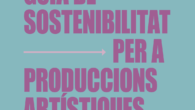
Cooperate or compete? The other way to undertake – Ateneo
In a business ecosystem dominated by accelerated growth, competitiveness and individualism, cooperativism emerges as a real and necessary alternative. While many business models are based on the logic of “the more for me, the better”, the cooperatives are based on a radically different principle: to cooperate to prosper collectively. But that does not mean renouncing professionalization, innovation or economic sustainability. It means to start from another place.
More and more young people are wondering if it makes sense to create projects that respond to real social needs, which do not generate precariousness or exploit the territory. In the face of the dominant story of the start-up, “fast failure” and growth at any price, cooperatives propose a rooted, sustainable model with a positive impact. Cooperativism is not just a legal formula; It is an organization culture, a way of understanding power, relationships and responsibility with the community.
Entering cooperatively allows you to share risks, make collectively decisions, and build projects with values. And it is not done alone. There are networks of support, training and accompaniment such as the cooperative Athenians that provide tools to initiate projects in such diverse fields as communication, energy, culture, care for people or agroecology. In addition, the Catalan legal framework and public calls such as singular projects allow to consolidate these initiatives with resources.
It should be emphasized that cooperativism is not the “B” of the business world, but a viable model and consistent with the social and environmental challenges of the present. Entering in Collective is also a way of taking care of how we work, with whom we do and where we want to go. In a moment of deep changes, cooperating can be the most transformative act in our hands.







